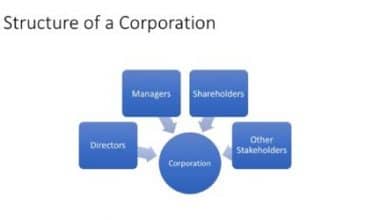Becoming a consultant brings many benefits; there’s flexibility in determining where and when you work, the jobs you take on, and the rates you charge for your time. There are minimal overheads to starting a consulting business, and it’s easy to scale up and down to accommodate your lifestyle and finances. Despite these advantages, there are important factors to consider in order to give your consultancy the best chance of success. Read on to find out how to start a consulting business, its advantages, and disadvantages.
What is a Business Consultant?
A business consultant is someone who works with business owners and managers to help them improve their operations and efficiency. Business consulting entails assisting a company in identifying, addressing, and overcoming challenges to achieve its objectives.
What Does a Business Consultant Do?
Business consultants can assist in nearly any need your business might have. There are business consultants that specialize in specific industries, while others take a more general approach. While specific services vary, some of the most common ones are listed below.
- Identify obstacles that are preventing growth or efficiency
- Determine what changes need to be made and help implement changes
- Provide any necessary training and resources to staff and management
- Bring out-of-the-box ideas to refresh a business
- Assist in business planning and creating new businesses
- Assess, hire, and fire staff, if necessary
- Implement new programs
- Analyze a company’s budget, suggest adjustments, and help put those adjustments in place
- Locate providers and partners to help meet goals
How to Start a Consulting Business
Working for yourself rather than for an employer has its drawbacks, including the loss of insurance coverage and a consistent paycheck. However, for many workers, the benefits outweigh the drawbacks: the flexibility to set your own schedule, choose your own projects, chart your own career path, and focus on goals that are important to you.
Self-employment is the preferred career route for over 10% of the population in the United States for these and other reasons.
One method to ease into self-employment is to start consulting in the sector where you’ve already worked. If you work for a law firm, for example, you could act as a legal consultant for companies that don’t have in-house legal counsel.
Rather than beginning a firm from the ground up, business consulting allows you to utilise your previous professional skills. This is a particularly lucrative option: areas that lend themselves to consulting, such as law, accounting, and management analysis, have the largest earning potential for self-employed individuals.
#1. Assess Your Strengths and Skill Set
Consultants are frequently recruited to solve problems that organizations cannot handle on their own. Why would they pay you, someone who knows nothing about their firm, to come in and tell them what to do if you don’t know anything about it? It’s critical to have extensive knowledge in a specific subject when launching a consulting business so that you can provide value to your clients.
There are numerous types of consulting services that you might choose for your company. If you know a lot about computers, for example, you could start your own business like a computer or IT consultant.
There are also plenty of chances for public relations experts, accountants, internet marketers, and business strategists.
Examine your skills to see where you can contribute. It’s also a good idea to take an objective look at any deficiencies or skills gaps you might have so you can work on filling them. Keep in mind that becoming a consultant may require special certificates or licenses, depending on your area of expertise. If you’re a fundraising consultant, for example, having a certification from the National Society of Fund Raising Executives is beneficial.
#2. Figure Out What Your Market Needs
Consider what types of queries, challenges, and pain points businesses in your chosen area of expertise have once you’ve defined your specialization. It’s not enough to have a diverse skill set and extensive understanding of your profession. You’ll find yourself treading water if businesses don’t have challenges that your consulting firm can solve.
Asking your market what they want and need is the best approach to finding out. Begin by looking for blogs in your niche on the internet. What are the topics that the thought leaders are writing about? Where does it appear that there is a lot of ambiguity? Is there a lot of discussion about a certain topic in any forums or comment sections?
You can also use your network to identify market pain points. If you want to start a digital marketing consultancy, for example, who can you think of who either runs a business, works closely with digital marketers, or is a digital marketer? You probably know a lot of people. Inquire about the difficulties they have in achieving their short and long-term objectives. Then consider how you and your company can assist.
#3. Ride the Organic Marketing Train
As an independent consultant, it will be entirely up to you to expand your customer base and ensure that business comes in on a regular basis. This is best accomplished through marketing, although organic promotion is usually the best.
Hopkins began her business with a simple post on Upwork, a freelancing site that was less well-known a few years ago but offered more profitable contracts, according to Hopkins. Hopkins claims that her first client is still with her and that she has grown nearly entirely without advertising.
“I’ve been quite lucky in that my company has grown organically.” I’m not sure if that’s usual, but in my experience, I always do my best. “I’m very honest, ethical, don’t overcharge, and am prepared to work within budgets,” she says, adding that this has resulted in a lot of organic referrals.
Organic marketing has two different advantages for business owners. The first is that business owners are likely to know one another and can provide you with referrals. Like attracts like, therefore if you get along with someone, you’ll probably get along with one of their friends.
The second benefit of organic marketing is that it is free. Hopkins laughs, “I’m prejudiced on how well it works for business since it’s free.”
#3. Invest in the Tools of the Trade
Hopkins created her company using trade-specific technology that allowed her to form and maintain relationships with clients, potential workers, and her assistant.
“I use three forms of recruitment software,” she explains, “web-based software that lets you list jobs.” There’s MightyRecruiter, which has a system that feeds to Indeed, Monster, LinkedIn, and any other job site you can think of, saving you time and concentrating all of your candidates in one place. This is a wonderful option for entry-level employment. For propositioning applicants or recommendations, LinkedIn offers a two-tiered recruiter service.
MightyRecruiter costs $300 each month and ZipRecruiter costs $1,000 per year. RecruiterLite costs $150, while Corporate costs $700. Hopkins pays around $500 per month for these recruiting platforms, which provide her access to people looking for everything from chefs to data scientists.
Hopkins also advises video conferencing software, which costs around $200 per year and allows you to communicate with clients more effectively.
“They log on and act as if they know who I am,” she claims. “Even if I don’t have an office space, people know I’m 5’2″, have a huge personality, blue eyes, and talk with my hands.”
Aside from these consultant-specific tools, new consultants should invest in the same things that almost all new small business owners do: create a website ($2,000 for a great, navigable site plus around $200 for hosting), order business cards, form an LLC (prices vary by state), open a business checking account and credit card, and hire an accountant to review the books on a regular basis.
#4. Staff Wisely
The quantity of work you have to complete determines whether you need (or want) to hire help. Working seven days a week and 12-hour days isn’t sustainable, no matter how zen you are, but it is a possibility if your company grows well.
Hopkins, for one, sees no benefit in taking on more work than she can handle right now. She did hire an on-demand assistant, who lives in another country and works part-time as a consultant.
“I can do the work with the customer, get the spec [job description] together, and he can discover the résumés, people, and LinkedIn profiles, which is the tough uphill struggle,” she explains. “He runs his own company, and we work together on a B2B basis. He works 50 hours for me some months and none the next.”
Because her assistant is an American living in Budapest, she communicates with him via Skype. She wouldn’t ordinarily recruit someone from outside the United States because “there’s a lot of talent right here,” but the two of them clicked right away through Skype. Otherwise, she might hire a couple of interns from her old graduate school to assist her with sourcing.
#5. Practice Your Elevator Pitch
If you can’t make and complete the sale, it doesn’t matter if you have an amazing skill set, a good marketing plan, or the most up-to-date equipment. Your elevator pitch is the first step in persuading potential clients to choose your consulting firm.
Your elevator pitch should be a brief summary of your target audience’s problem, the solutions you provide, and how you differ from the competitors. Even if you’re highly passionate about the services you provide and the industry issues you perceive, you should limit your pitch to three words at most.
Your elevator pitch can be thought of as your value proposition in the big picture. If a potential client is interested in learning more after hearing the condensed version of your value proposition, you can continue to tell your story and discuss your consulting services in further detail.
#7. Write Client Proposals
Writing a client proposal is frequently the final stage in bringing on a new client. This usually happens just before the client signs on, effectively concluding the deal. As a result, writing proposals is a vital component of securing new business for your firm.
Client proposals provide you with the opportunity to show how you can help your client address their problem. As a result, it’s critical to be crystal clear about the project. Why you’re lending your consulting services, and when you’ll finish it. It’s also critical to be absolutely explicit about all of the project’s elements. Such as deliverables, budget, and how you’ll measure results. Make yourself clear, persuade the client, and clinch the deal.
#8. Set Your Pricing
You’ll need to provide pricing with your proposal. It’s difficult to know how to price your consulting services when you’re just starting out. Hopkins, fortunately, has a simple formula to follow.
“When I first began moonlighting, I converted my HR manager income into an hourly wage.” That’s undercharging for a consultant. She explains, “I now charge double that hourly rate, and that’s been a progression.”
When it comes to moving past that starting converted hourly rate because as an independent. You’re taking on more risk and should be billed more than an in-house option Hopkins recommends demonstrating how much value you bring to the table.
“For [existing] clients, I created a cost/benefit analysis for each of them to show them how much money they saved versus working with a traditional recruiter or another independent consultant,” she says “she explains. “Then I told them my prices were going up 25%, and that this was the new hourly rate, and they all said, “Done, fine.” I simply demonstrated the math to them. I’ve just pitched clients at the increased rate thus far, and no one has told me I’m overcharging. I’m probably still undercharging, but I enjoy working with small businesses and startups, and I can make it work if I want to. I want to help them if they have a strong goal and vision if they’ll be ethical and treat new workers well since I know a lot of recruiters and consultants won’t.”
#9. Stay Organized and Deliver Results
Once your consulting business is up and running, be organized and deliver outcomes to earn repeat business and referrals. It’s critical to stay organized in order to avoid losing vital information, missing deadlines, and forgetting to remind clients to pay you. Begin by identifying processes that can be automated. You might be able to get paid electronically rather than via check. Or you might use an online bookkeeping system like QuickBooks to keep track of your finances. You can manage your clients using software like Infusionsoft. Hire a virtual assistant if everything else fails.
Delivering results is a little more difficult to advise on, but it’s crucial to your consulting firm’s survival. Keep up with industry trends and check in with your clients to make sure you’re giving them the results they desire and that help they reach their goals. Your consulting business will be set up for success if you successfully assist your clients in achieving their goals.
Can You Start a Consulting Business With No Experience?
The good news is that it is not difficult to launch a consulting firm even without prior experience. In today’s world, anyone may launch their own successful consulting practice. If you already have a space to work, a computer, and a phone, then you have everything you need to get started in the business of providing consulting services.
What Should I Charge as a Consultant?
The following procedures need to be taken in order for you to derive your hourly consulting rate from your weekly wage: Consider how much money you would like to earn each year. Take that total and divide it by 52, which represents the total number of working weeks, and then divide it again by 40. (number of hours each week). Raise that number by a markup of between 25 and 50 percent.
Why Do People Quit Consulting?
After two to four years on the job, management consultants frequently leave their positions. Some people leave their jobs because they are offered positions with higher income, greater autonomy, or a better work-life balance. Others leave their jobs in order to get new experiences, rekindle their interest in learning, or pursue other long-term goals.
Can Anyone Become a Consultant?
Becoming a consultant does not require meeting any specific requirements because their work is done on a contractual basis. It all boils down to the requirements of the organization and how persuasively you can present your offer. However, businesses anticipate consultants to provide advice at the level of an expert, and employment in consulting is very competitive.
Consulting Niches to Consider
If you have skills that can be applied to a variety of industries. How do you decide which one to focus on? When you’re just starting out, it’s a good idea to concentrate on a market that has a steady demand. You may, on the other hand, find a developing field of business and build a reputation as an expert in that field. Here are some consulting niches you might want to consider specializing in:
#1. Accounting
Yes, working as an independent accountant qualifies you as a business consultant. As an accountant, you’ll assist firms in keeping track of their books and finances. If you want to work as an accounting consultant. Having a CPA license is advantageous, but anyone with bookkeeping experience is qualified.
#2. Branding
You can assist businesses to identify and enhance their brand voice and image as a brand consultant. As a brand consultant, you’ll research a company’s customers before creating a brand that will help the company connect with its target market. It helps to have marketing experience when working as a brand consultant.
#3. Web Design
Web design is another area where many firms want assistance. As a web design consultant, you’ll work with businesses to construct a website that’s consistent with their brand and meets their needs. A background in computer engineering is advantageous in this situation.
#4. Human Resources
You can work as an HR consultant, similar to Hopkins, supporting organizations with their staffing and employee management needs and advising them on best practices for keeping their employees happy and motivated. Everything from developing job descriptions to assisting with onboarding could be part of this role.
#5. Green Living
As more companies pledge to go green in order to protect the environment, providing advice on how to reduce carbon emissions can be a lucrative industry with no competition. As a green living consultant, you can assist organizations in a variety of ways to reduce their carbon footprint. Including designing more environmentally friendly workplace settings and manufacturing processes.
#6. Organization
Individuals and corporations seek the advice of organizational consultants on how to cut through red tape, clutter, and distractions in order to work more efficiently. Because technology has introduced new diversions and blurred the lines between work and family life. This is an area that requires more attention.
Do Consultants Bill Hourly?
A consultant is someone who lends their skills to a client in order to assist them in carrying out a certain project or collection of duties, such as opening a new restaurant, improving their marketing efforts, increasing their revenue, or bringing in new customers. A consultant will charge a company based on their hourly rates as well as any additional consultant fees that they have established.
What is the Difference Between Freelance and Consultant?
Consultants can work as workers for commercial corporations, as well as for the government and charity sectors, but freelancers typically operate as independent contractors or as self-employed professionals. Freelancers are also sometimes referred to as “contractors.” Because of this difference, the job requirements for the two different career paths could be completely different from one another.
How Many Hours Do Consultants Work?
How many hours per week do consultants typically put in? You may expect to put in at least forty hours of labor each week, however, the specifics of this depend on the companies you work for and the types of clients you serve. The Big Four, which consists of Deloitte, KPMG, EY, and PwC, work an average of 40-50 hours per week, whereas the MBB companies work closer to 60 hours per week on average.
Conclusion
Whether your consulting firm is large or little, physical or virtual, pricey or inexpensive, you must have the skills, resources, and confidence to assist other business owners in getting back on track. Everything else revolves around keeping track of workflow and expectations.
FAQ
Can a consultant be a non profit?
In other words, nonprofit consulting is not just organizations paying someone for advice, but it also includes organizations paying someone to actually implement or deliver a particular portion of the work. A few synonyms for nonprofit consulting: subcontracting. freelancing.
How do I start a grant writing consulting business?
How to start a grant-writing consulting business
- Conduct a personality and skills inventory on yourself to decide whether you are suited to be a grant writing consultant.
- Define your market niche by determining what type of grants you want to write. …
- Research sources of funding within your industry or market niche.
What is a consultant for a company?
What Is a Business Consultant? Business consultants serve as professional advisors to help companies achieve their goals or streamline operations in a particular area of the business, such as sales, IT, finance, marketing, supply chain management, HR, operations, engineering, and security.






